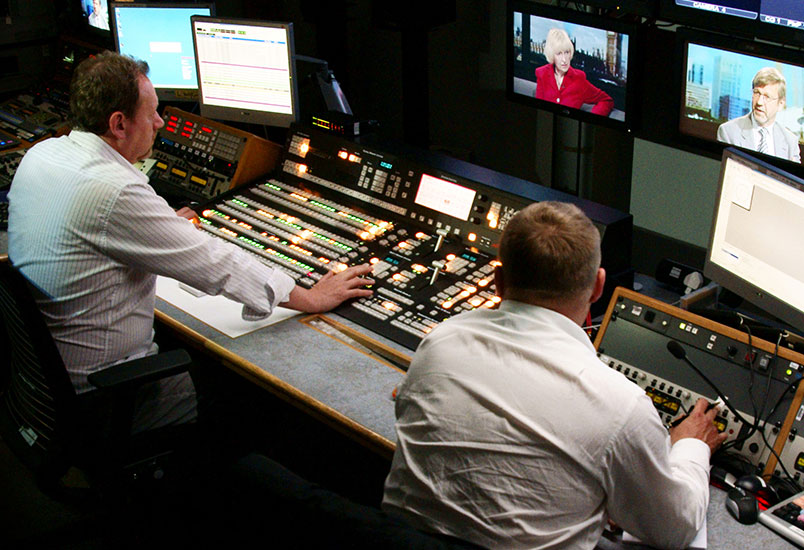
Television down-the-line
Down-the-line interviews are very commonly used, particularly by 24 hour news channels, but they are intrinsically challenging. They’re so-called because the questions are not asked face-to-face, but via a remote link (the ‘line’). The interviewee listens to the questions through an earpiece and answers the questions directly to camera.
This kind of interview can be convenient if you are away from London because it can be conducted all around the country but many people find it difficult to master the down-the-line.
We will show you how to cope with the technical demands of this format. One of the problems with the down-the-line is that the interviewee can feel at a disadvantage since you cannot see the presenter, although the presenter and any studio guests will be able to see you. We will help you to look natural and relaxed even though you are staring into a camera lens.
We’ll make sure you know how to avoid technical hitches. All communication is dependent on your earpiece working well so it is important to check this before the interview begins. It can be very disconcerting if you can’t hear the questions.
Down-the-lines can be done both ‘on location’ and from a studio. We’ll talk you through the pros and cons of both. Location interviews can be tricky, primarily because of the potential distractions, such as traffic and passers-by. However down-the-line studios tend to be small and cramped and therefore rather uncomfortable which means the interviewee can easily appear shifty and uncertain. We’ll help you decide which one works for you.
The vast majority of down-the-line interviews are played live into a news or current affairs programme. Our media training course will ensure you know how to prepare for this type of interview to ensure that your messages are heard and that you know how to perform so that you come across as confident and convincing.
“The feedback and support you offer after the training itself is reassuring. It means that your lessons stick and the people you train need never be unprepared again.”
Senior civil servant
